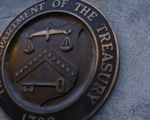Key Highlights
Antitrust Proposals and Challenges
The U.S. Department of Justice (DOJ) has proposed significant measures to curb Google’s market dominance, including:
- Forcing the sale of Google Chrome.
- Requiring Google to share search data and results with competitors.
- Potentially divesting Android software.
These steps follow an August ruling that found Google guilty of illegally monopolizing the search market. However, legal experts and industry analysts anticipate substantial hurdles due to the sweeping nature of the remedies and the likely legal battles that could stretch for years.
Legal Precedents and Potential Roadblocks
- Historical Context: The DOJ previously sought to break up Microsoft over browser market monopolization in the early 2000s. That ruling was overturned on appeal, leading to a settlement instead of a breakup.
- Proportionality Concerns: Critics argue the remedies may overreach and lack a direct causal link to the antitrust violations. Divesting Chrome, for instance, might not address Google’s search monopoly, as Chrome can run non-Google search engines.
- Trump’s Stance: President-elect Trump’s administration may adopt a pro-business approach, potentially tempering aggressive antitrust actions to avoid weakening U.S. tech competitiveness, particularly against China.
Implications for Google
Chrome’s Strategic Value
Chrome, which commands about two-thirds of the global browser market, serves as a critical component of Google’s ad and search businesses by providing valuable user data. As a standalone entity, its value would significantly diminish.
Financial Impact
Google’s search ads, which rely on data gathered through Chrome, account for more than half of Alphabet’s quarterly revenue, which recently stood at $88.3 billion. A forced sale would disrupt this synergy and reduce overall profitability.
Criticism from Google
Google has labeled the DOJ’s proposals as unprecedented overreach, citing potential harms such as:
- Reduced user privacy.
- Financial challenges for smaller developers and businesses, like Mozilla, which benefits from featuring Google Search.
Wider Industry Concerns
Impact on Competitors and Partners
- Search Licensing: Proposals for Google to license its search results at nominal costs could provide smaller competitors and news publishers with audience insights.
- Apple Partnership: The DOJ seeks to ban Google from offering financial incentives, such as the billions paid annually to Apple to remain the default search engine. Analysts argue Apple may still choose Google as the default due to its widespread popularity.
Market Reactions
Alphabet’s stock dropped nearly 5% following the DOJ’s proposals, reflecting investor concerns about prolonged legal battles and regulatory uncertainty.
Expert Opinions
- Kevin Walkush, Jensen Investment Management: Views the proposed Chrome divestiture as an “over-ask,” with little probability of materializing.
- Gus Hurwitz, University of Pennsylvania Carey Law School: Argues that divesting Chrome does not directly address Google’s search monopoly, raising doubts about its legal validity.
- Megan Gray, Former General Counsel at DuckDuckGo: Suggests Chrome’s value is intertwined with Google’s ad and search businesses, making its forced sale ineffective in resolving antitrust concerns.
Outlook and Challenges
Legal and Administrative Delays
The lengthy appeals process and potential changes in political priorities under the incoming administration could delay or dilute the enforcement of antitrust measures.
Impacts on the Tech Industry
While the proposed measures aim to reshape the digital landscape, their feasibility and effectiveness remain in question. Prolonged legal battles could create uncertainty for Google, its competitors, and the broader tech sector.


















